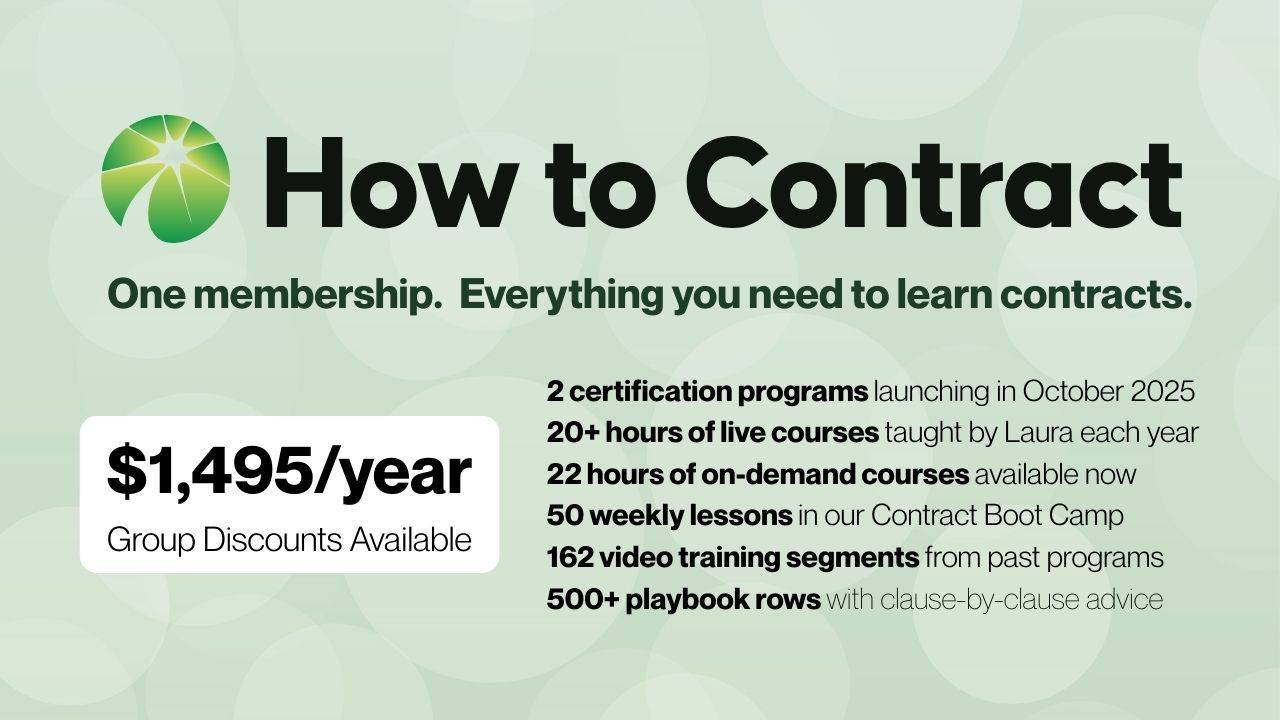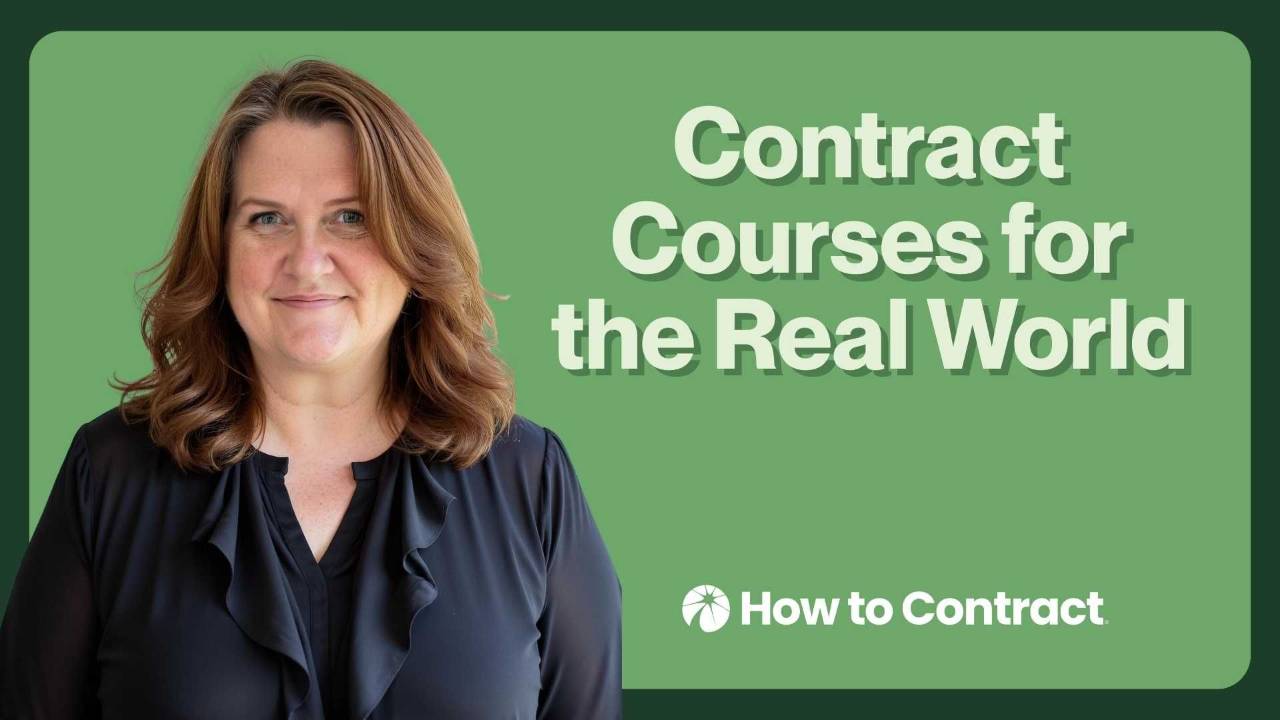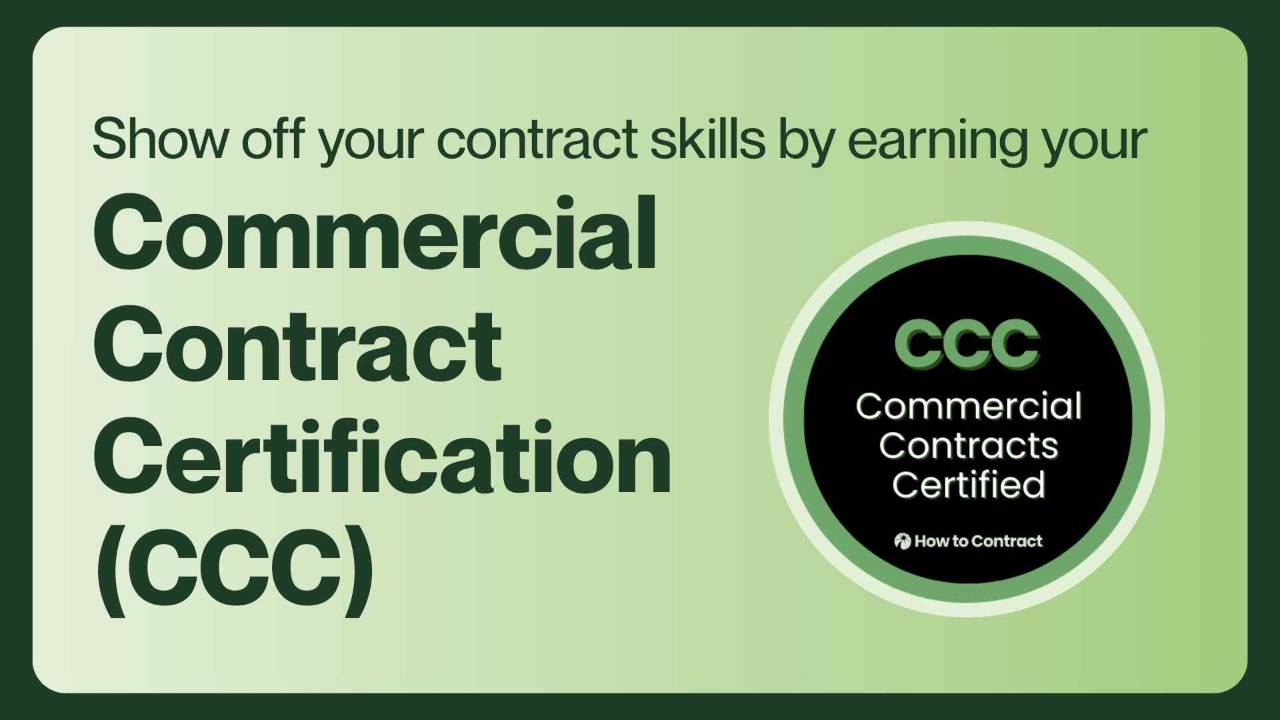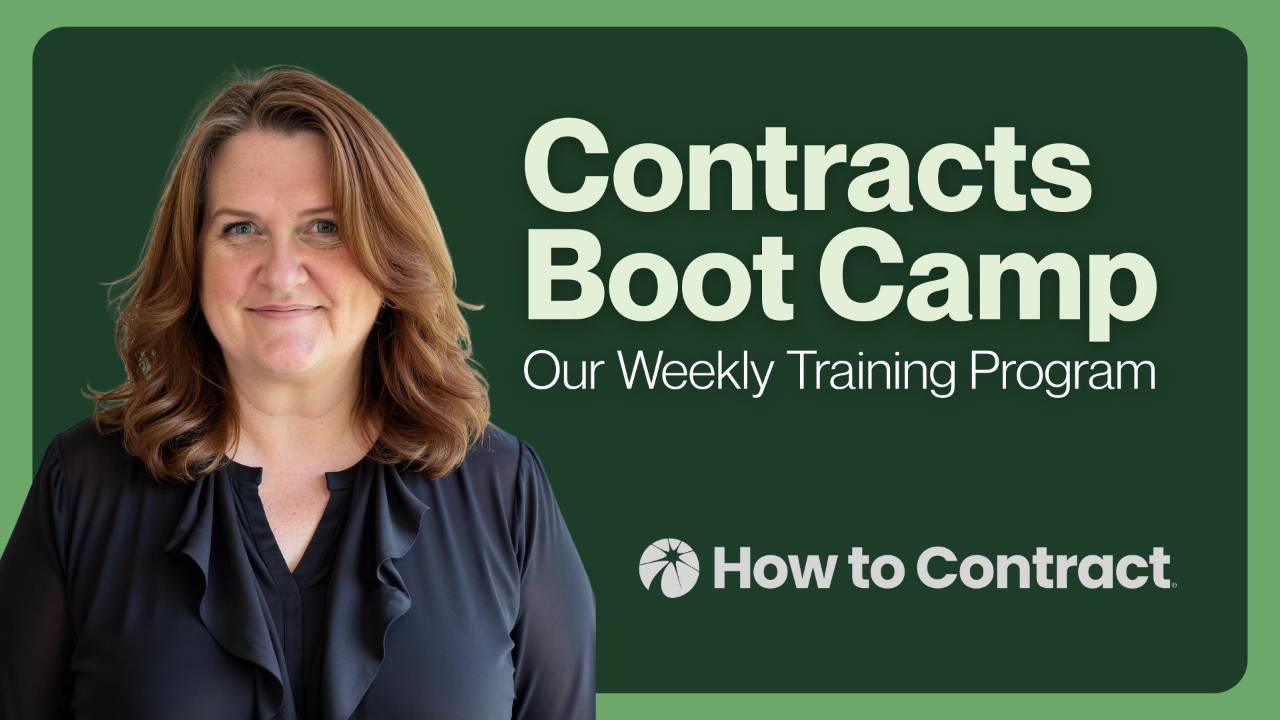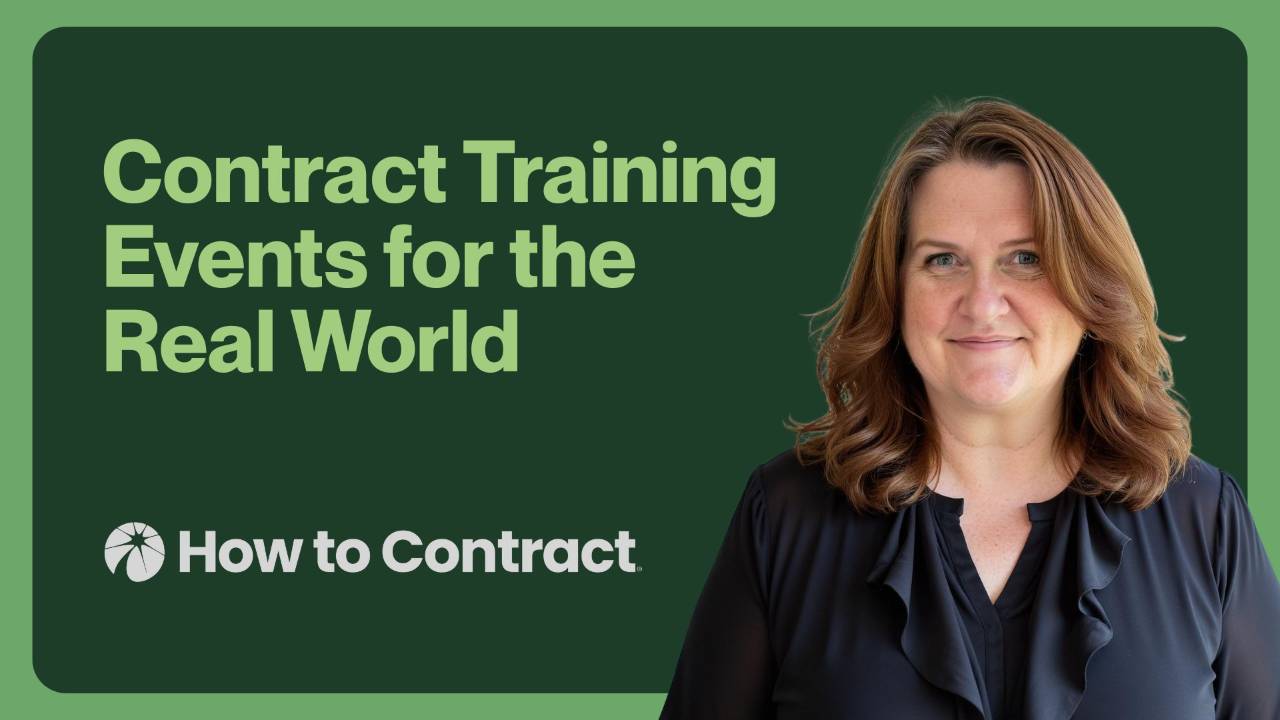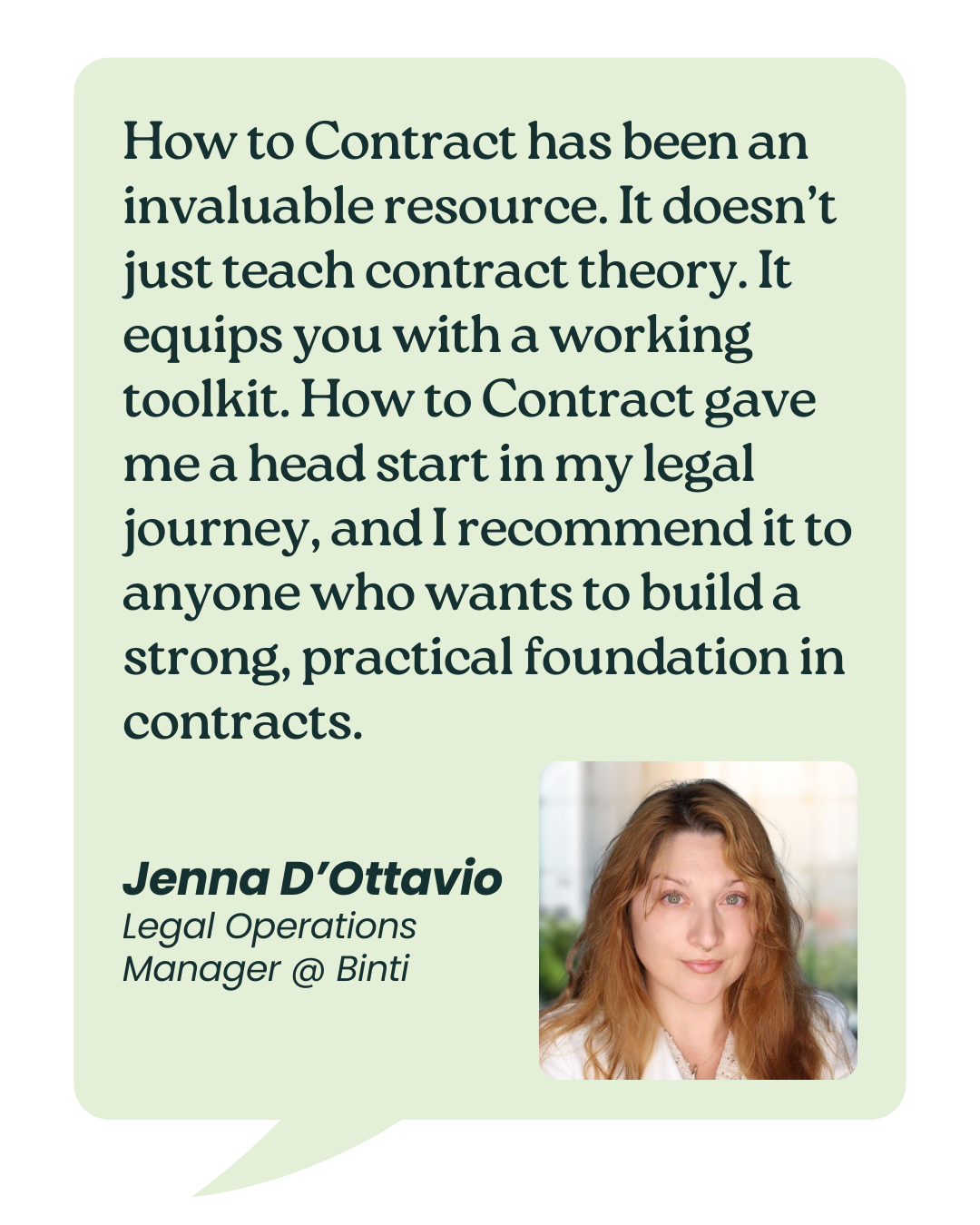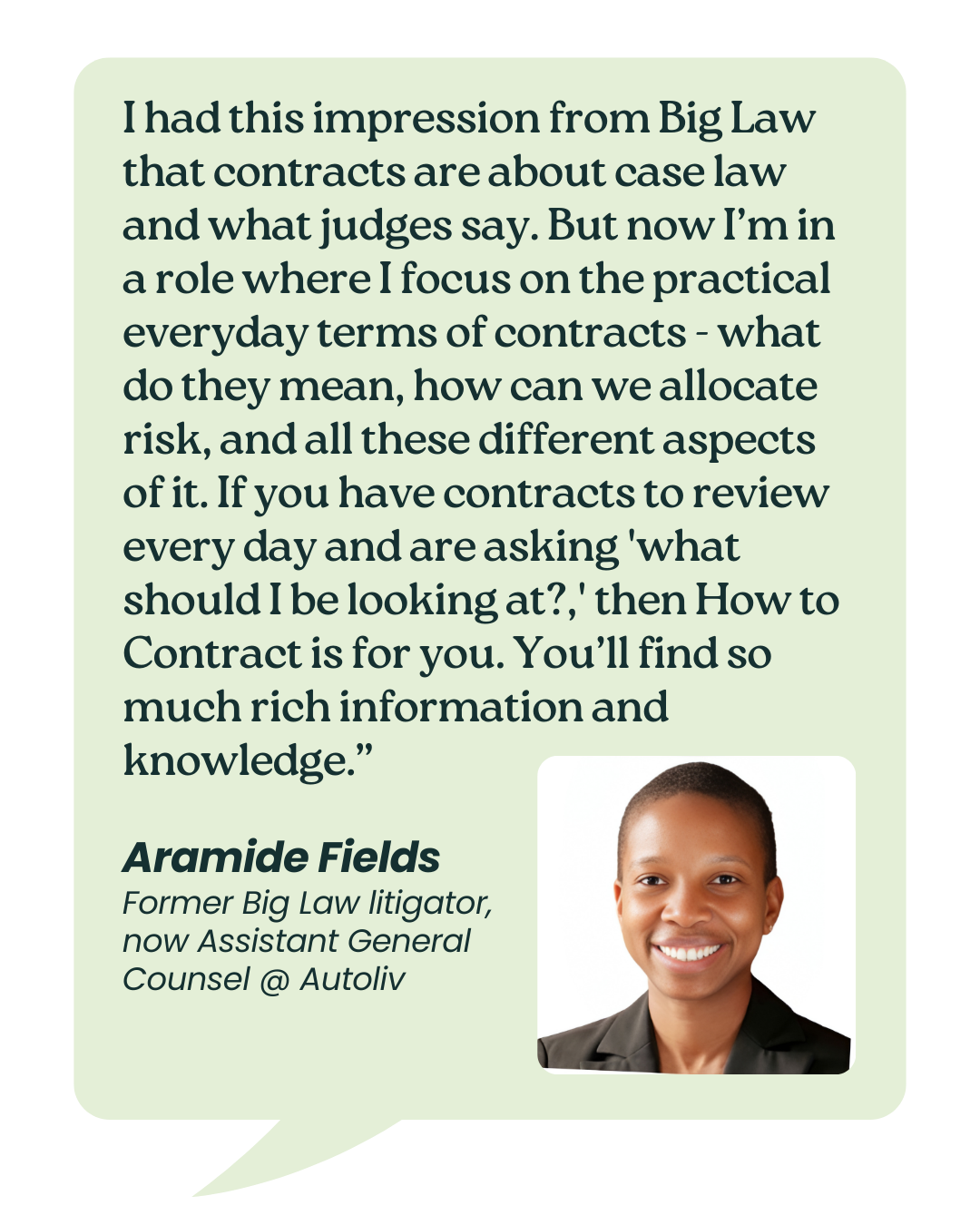
How I Contract: Nate Kostelnik on Drafting Pitfalls and Negotiating Service Agreements
This interview is part of our How I Contract interview series. We talk to lawyers and professionals about how they approach balancing legal risk with business objectives. In this interview, we talked to Nate Kostelnik, who works in contracts, IP, and legal operations at the Oncology Nursing Society.
Biggest Challenge When Starting with Contracts
What was your biggest challenge when you started working with contracts?
When I started working with contracts, I’d never draft without a template. Templates helped give me the substance, but they also made me a slave to the form. Clunky recitals. Tons of defined terms in each sentence. Clauses that I thought had to be in every contract or had to be written a certain or “correct” way.
Now, I realize that contracts are literally just words. You can just say what you mean.
If I’m struggling with a clause, I try to verbalize it first, as if I’m talking face-to-face with the counterparty. With conversational language, it is easier to get to the heart of a concept. You can’t really do this if you are too committed to form.
First 30-Day Plan for Contract Work
When you just start working with contracts, what should your first 30-day plan look like?
Learn the business. Not just the customers, but also your vendors. Understanding how your company makes money and spends money can help you see the bigger picture. You’ll see how various pieces fit together and will be better able to issue-spot actual issues.
Mistakes to Avoid in Contract Work
What mistakes should contract lawyers and professionals avoid when working with contracts? How would you avoid them?
It is a mistake to try to make every contract perfect. You won’t get everything you want and some of the counterparty’s language that you had to accept may be less than perfect. But you’re not shooting for perfection. You’re shooting for “close and closed.” Get it close to perfect and get it closed. Fortunately, if you work with a lot of contracts, this will tend to happen by default. You just won’t have the capacity to make everything perfect, so you’ll learn quickly when something is close enough and when it actually needs more work.
Key Question Before Drafting
What is the one question you always ask (yourself/others) before drafting a contract?
Calibri or Times New Roman? Just kidding. I want to know who is paying whom for what. That tells me what template to use. And if I don’t have a template, it tells me what clauses to start with when drafting from scratch…in Calibri.
Essential Considerations When Drafting
What should you never ignore when drafting a contract? Why?
Acceptability. The purpose of a contract isn’t just to protect your company or your client’s interests. It’s also to get signed. Don’t ignore the counterparty’s perspective. If your contract is too one-sided, it’s just going to take longer to get signed (or not signed at all), in which case it isn’t serving its purpose well.
Top Five Focus Areas in First Drafts
What are the top five things to hunt for in first contract drafts?
- Are the payment terms clear? It should be easy to figure out who is paying who, how much, for what, and when. If those answers aren’t obvious in the first draft, that should be the focus of the second draft.
- Term and termination. When does the contract start and end? Does it autorenew? Can either party terminate for convenience, and if so, is there an early termination penalty?
- Are there any heavy-handed clauses like exclusivity, most-favored-nation, or time bars for claims (i.e., contractual statute of limitations)?
- Are there any clauses that create sneaky and burdensome affirmative obligations? For example, I recently saw a contract that said, 5 years after termination, we had to notify the other party and ask them what we should do with their materials that were still in our possession. That clause is a pain to track and manage compliance. I want to identify those clauses quickly.
- When I get a SaaS agreement to review, the first thing I do is hit CTRL+F and type “renew” so I can see how much notice the vendor wants us to give them for nonrenewal. The longer the notice period, the more unfair I’ll assume the rest of the contract is, so I’ll tend to scrutinize it more.
Tips for Improving Drafting and Negotiation
Are there any simple hacks our readers can use right away to improve their contract drafting and negotiation skills?
If you want to get good at a particular type of contract, find a template and just try to make it shorter.Try to revise an NDA down to 1 page. You’ll learn to focus on the key concept behind each clause and the best way to express it. This is especially helpful for younger lawyers and contracts professionals. Templates and precedents can be great places to start, but they rob you of the chance to learn the purpose and nuances of a clause. Instead, take one of those templates and just try to cut 1-2 pages. You’ll learn that you can’t waste space on unnecessary legalese. You have to defend every word. If you can’t, cut it.
If you can take a clause from 5 lines of text and reduce it to 2 lines without affecting the meaning, you’ll be ready whenever a counterparty tries to redline that clause. You’ll be able to justify every word and respond to any request to add something new.
Practical Contract Tip
If you could give just one practical contract tip, what would that be? Why?
When you define a term, don’t underline it or put it in italics. Put it in bold instead. Bold text is easiest to find when you have to hunt through a document to find the definition of the term.
Avoiding Common Negotiation Mistakes
What are the most common contract negotiation mistakes? How would you avoid making them?
I used to think that once I shared a document with the other side, my position as reflected in the document was frozen in time. I thought it was a mistake to revisit something you had already written or approved. Now, I treat nothing as final until the contract is signed. If my position has changed, I’ll be upfront about it. There is no shame in doing that if you’re honest. It may cause some initial inconvenience or frustration, but that quickly fades as everybody turns their attention to resolving the issue. Here are some things you can say to avoid this mistake: “Unfortunately, on further consideration, we are no longer able to agree to this because…”
“Apologies. We accepted your edit here on the assumption that our language in another clause would be accepted. Since that is not the case, we have to make further edits…”
“Sorry, I misread your edit and should not have accepted it.”
“Coincidentally, I just attended a great How to Contract webinar and learned a lot about this topic. In fact, they covered a clause just like this one, so I’m more knowledgeable about it now and my perspective has evolved, so I can no longer agree to this.”
I used to waste time agonizing over writing an email trying to explain what I thought was my mistake and why my position had changed. Now, I’m more direct. Apologize upfront and then work to resolve the issue. Once the deal closes, everybody will eventually move on, and nobody will remember how you OK’d that one clause and then asked to change it. This works both ways too. I don’t hold the other side to their position. If they ask to revisit something they previously committed to, I’ll work with them to resolve things.
Advice for My Younger Self
What advice would you give to your younger self when you started working with contracts? Why?
Don’t talk yourself out of requesting an edit because you think the other side “will never accept it.”
You never know what they’ll agree to. I’ve seen people accept limitations of liability clauses that include carveouts for breach of contract. You just never know. So, if they agree to your edit, that’s great.
But more importantly, if they don’t agree to your edit, you’ll learn why. It takes time to learn judgment and what is a “fair ask.” The only way you’ll learn that is by making the ask, being told “no,” and understanding why. Once you get told “no” a few times, you’ll figure out why your ask may not be reasonable.
This doesn’t mean you should try to rewrite the other side’s document. Pick your battles. But if you want to ask for a change, go ahead and ask for it. As you build up experience, you can anticipate what the other side will usually say. But when you’re starting out, don’t assume you know what they’ll say.
Biggest Lesson Learned in Contracts
Could you share the biggest lesson you’ve learned while working with contracts?
Disputes rarely arise from the clauses you negotiate the most. Yes, those clauses are important and deserve attention, but it’s usually some random seemingly innocuous clause that causes problems.
Shoutout to Influential Figures
If you could give a shoutout to one (or more) person who has influenced your life in contracts (or is your mentor), who would that be?
The new legal content creators like Laura Frederick, Nada Alnajafi, Jessica Nguyen, David Tollen, Shaun Sethna, and LawInsider’s Contract Teardown. They consistently put out helpful, practical advice on contracts. They’ve replaced traditionally boring CLEs as the best-trusted source of knowledge.
Continuous Contract Training
Do you think lawyers and professionals need continuous contract training? Why/why not?
Yes. There is a saying that you’ll never be younger than you are right now. You can apply the same idea to contracts: They’ll never be less complex than they are now. They’re just going to get more complex. Longer. More inaccessible. Without continuous contract training, it will be harder to keep up.
Preferred Interview Question
What interview question would you like to be asked and how would you answer it?
“How are you drafting contracts differently today compared to a few years ago?”
I am drafting not just to protect my company’s interests, but also with an understanding that sometime and somewhere, another lawyer or contract professional is going to read what I write. They’re busy, just like me. They have lots of contracts to review and redline, just like me. Nothing would be better — for both of us — than for them to get my contract, review it, and approve it, without redlines.
How can I draft a contract to make this happen?
Next Interview Recommendation
Who should we interview next? Why?
Alex Hamilton. There is a lot of information out there about issue-spotting and redlining contracts, but Alex talks, somewhat uniquely, about how to close contracts faster and more efficiently. He also wrote a great book called “Sign Here.”
How to Contract's membership is designed to help you build real-world expertise with commercial contracts. Get access to our comprehensive system of live and on-demand courses, weekly lessons, detailed playbooks, and more. Join today!

